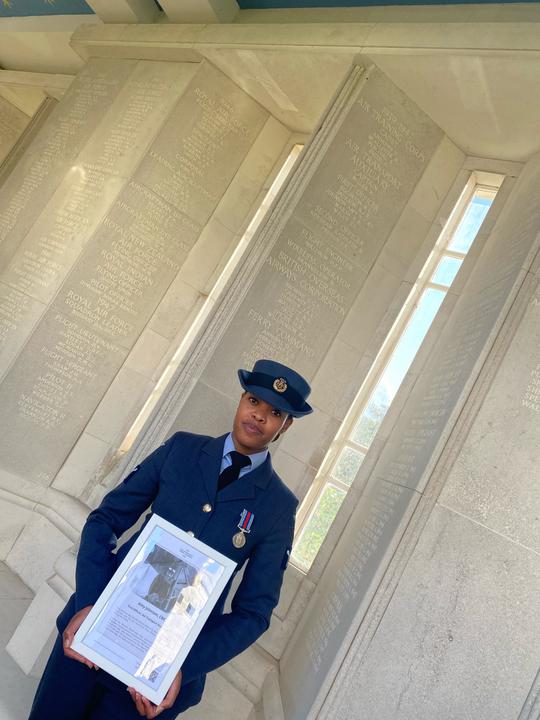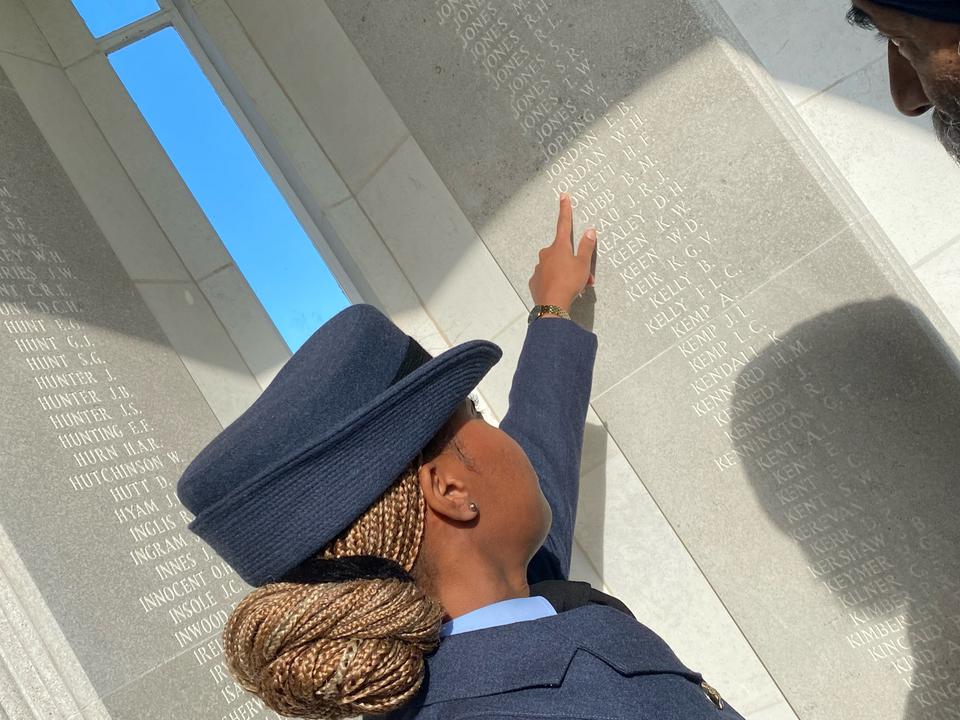
As Black History Month ends, the RAF reflects on the supporting events which took place.
Black History Month is a time to recognise that our people are our greatest asset, and that we must continue to work together to harness our differences to create and sustain an environment where our people feel able to be authentic in the workplace, where everyone's needs are considered, and where everyone feels respected and able to achieve their full potential.
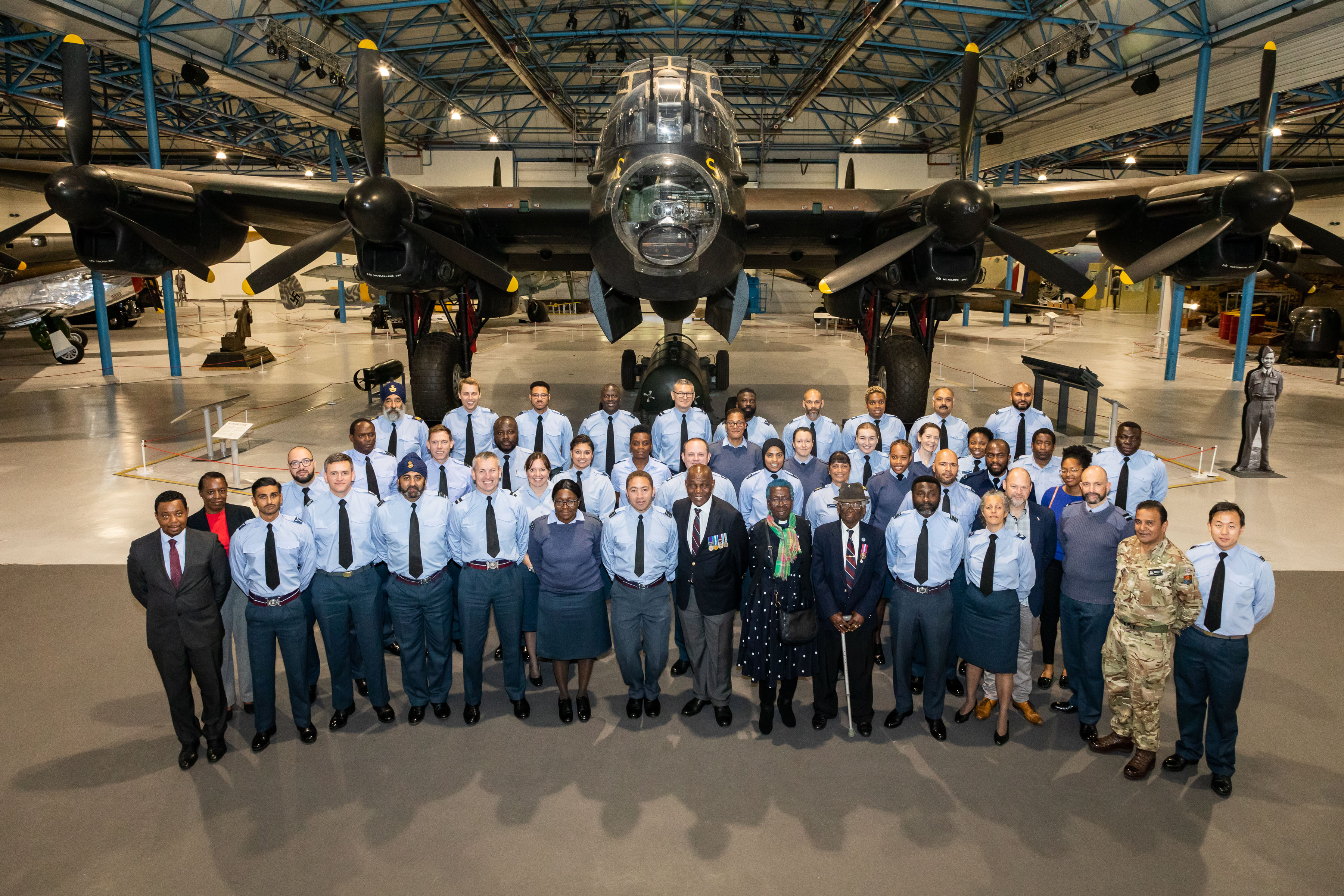
Why is Black History Month important to us in Defence? Throughout our history, we can look back with pride and reflect on the immense contributions of Black Service personnel from African and Caribbean decent. With this year marking 100 years of Service and Sacrifice, now, more so than ever, Black History Month provides a vital platform for Defence to highlight the contributions of these service personnel.
"Through this year’s Black History Month, the RAF has engaged with several National initiatives to remember black personnel who served through our history. Additionally, events such as the RAF BAME Network Conference presented a chance to look to the future by recognising the benefits of diversity. A key initiative is the BAME reverse mentoring scheme, which looks to embrace different views by giving a unique opportunity to pose those difficult questions in a safe space, to challenge understanding, all helping to ensure that our Service adapts to always be ready to meet the next operational challenge."
Air Marshal Gerry Mayhew
Deputy Commander Operations
Black History Month offers us an opportunity to reflect on our shared history and celebrate the immense contributions of people from Afro-Caribbean descent to British society. However, it is also a time for us to challenge our thinking beyond history to cultivate new ways of learning, celebrating and understanding the contributions, heritage, lived experience and rich culture Black Britons have brought, and continue to bring to our nation.
"If I am honest, I never understood Black History Month. Like most I would argue, 'Why do we need a Black History Month? These tales are all of ‘ours' and surely we all celebrate 'our' history together right?' The problem is, the enlightenment of hearing a story recently at the Runnymede Air Forces War Memorial made me realise that not all stories had been told, and that 'our' stories had not been told as openly as others. I was not aware that people like me had served before me; this denied me a historical connection with my service and after 11 years of my own service, this was difficult to reconcile. But why, you may ask, is this important? In failing to recognise a history and a contribution of a people, faith, or ethnicity, we deny the sense of ownership and pride that goes with those contributions. We deny people from those communities a tradition and those contributions become a negligible factor in the thoughts of service; we deny them their part in the shared endeavour which made people like me serve."
Wing Commander Calvin Baily
Chair of the RAF BAME Network
The RAF Black Asian and Minority Ethnic (BAME) Network hosted its Annual Conference on 20th October, at the RAF Museum at Hendon. The Conference was attended by members of the Whole Force and special guests, including Reverend Eve Pitts, the first black female vicar in the Church of England; and Albert Jarrett, a 96-year-old RAF World War II veteran.
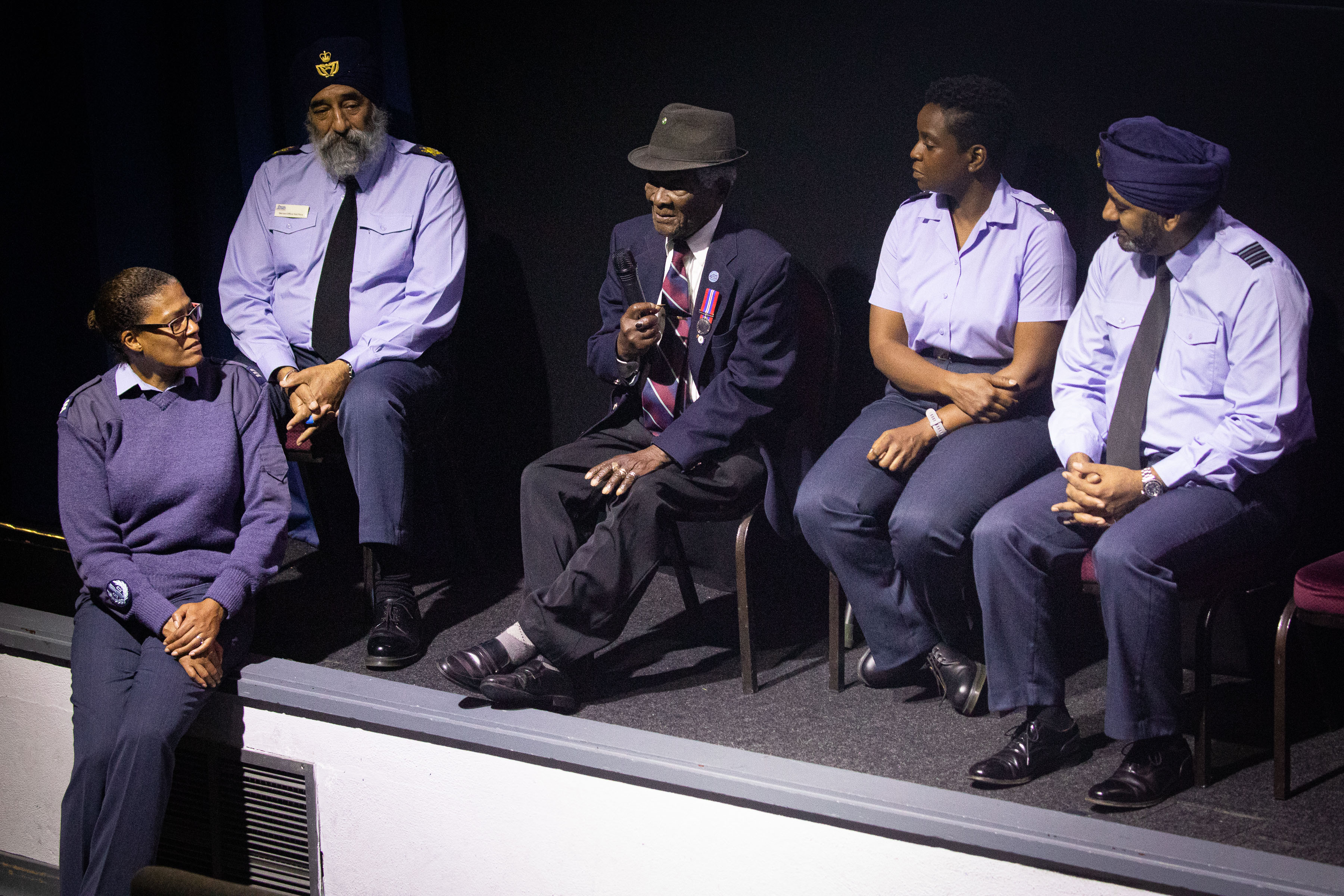
Air-Vice Marshal Suraya Marshall was also a speaker, who is the highest ranking BAME military figure and first woman to command an Operational Air Group, as newly appointed Air Officer Commanding Number 2 Group. The event focused on BAME Service Personnel’s contribution to the RAF, their lived experience and what the future looks like in improving Diversity and Inclusion.
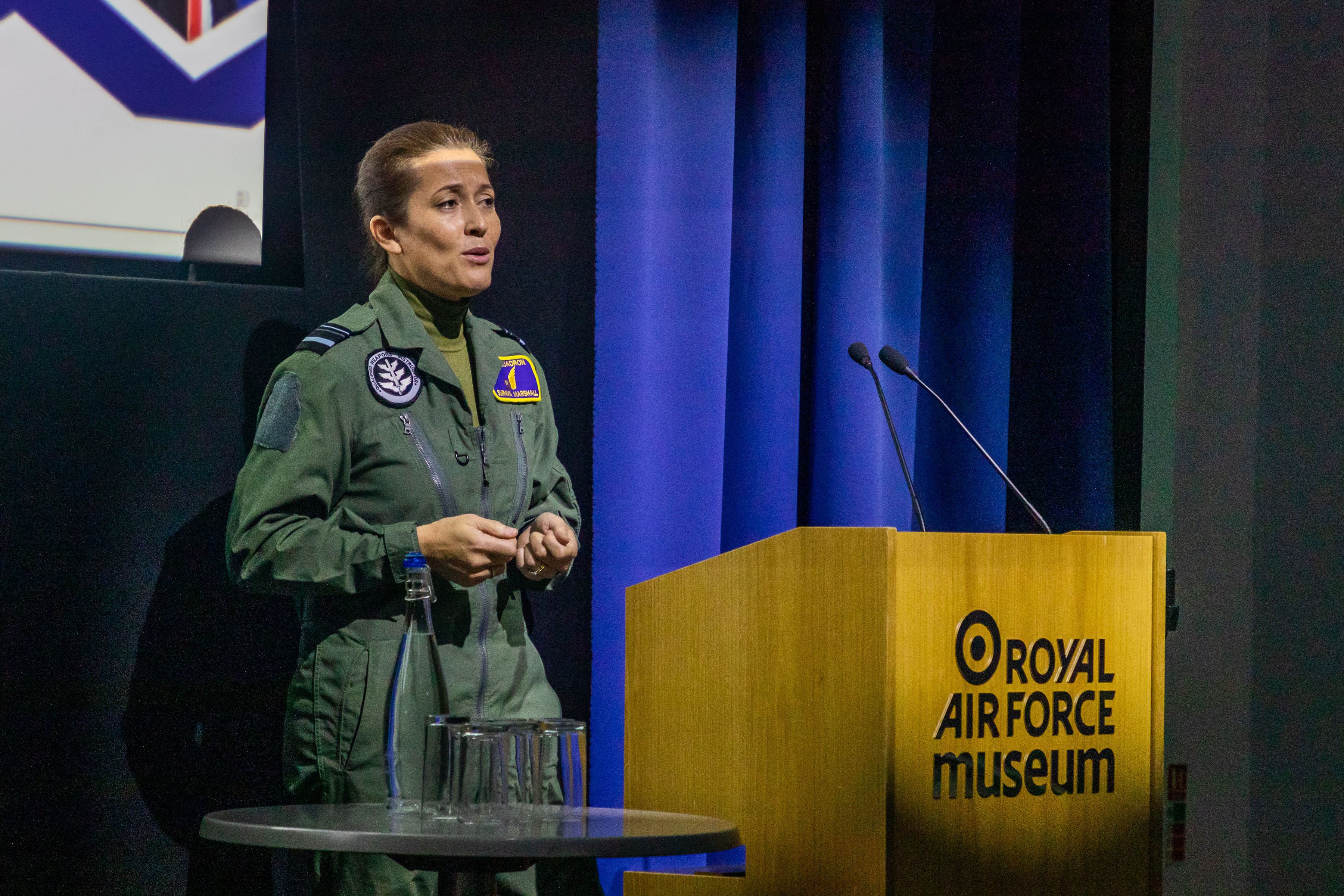
The Defence Sikh Network hosted a Conference in September, to celebrate National Inclusion Week 2021 with other Diversity & Inclusion networks across Defence. They later attended a wreath laying service in memory of the RAF’s turban wearing Sikh Fighter Pilot, Squadron Leader Mahinder Singh Pujji.
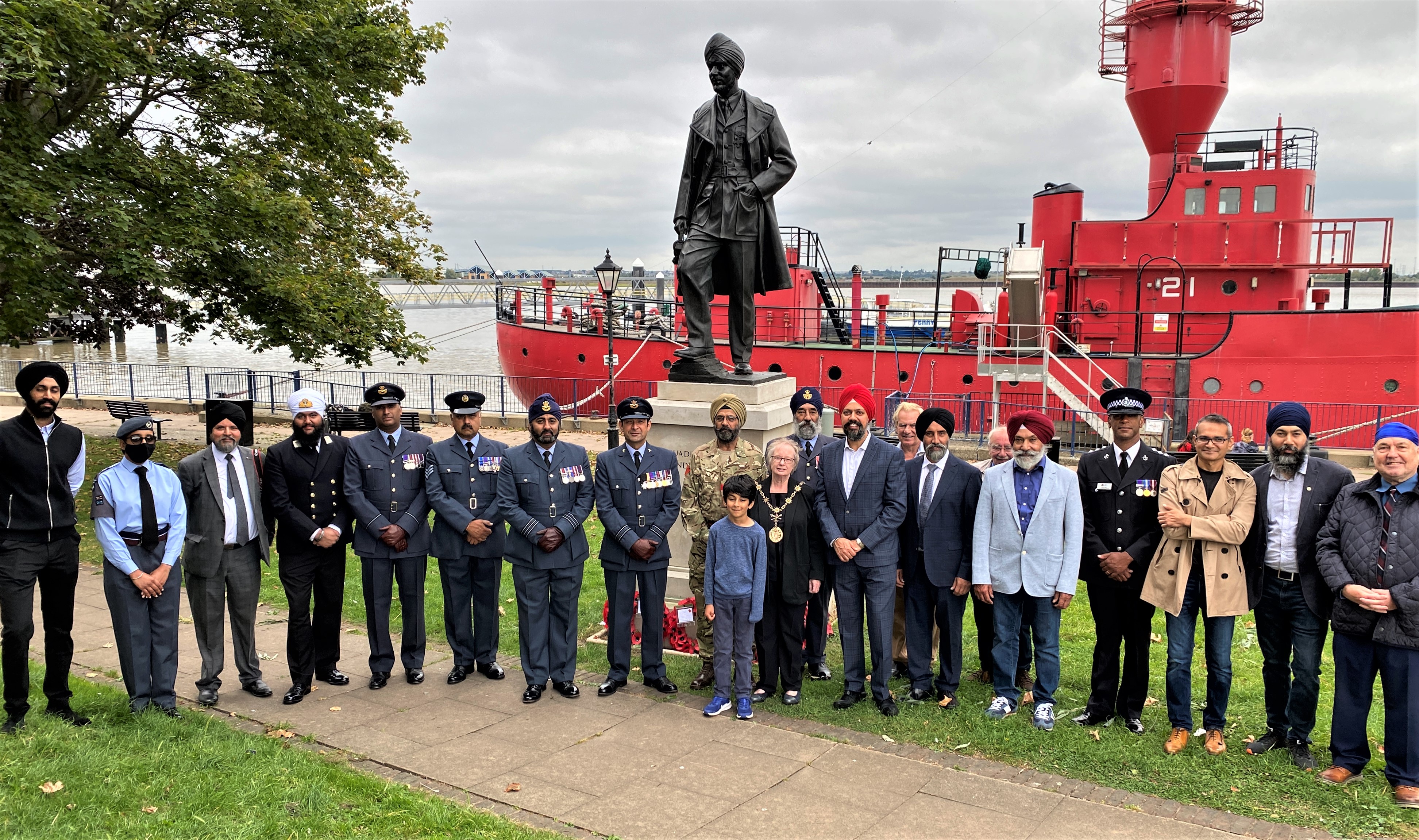
On 21st October, members of the RAF joined the Association for BAME Engineers (AFBE-UK) Awards Night, to continue promoting higher achievements in education and engineering particularly among people from BAME backgrounds. A successful BAME talent who has benefited from the equal opportunities the RAF provides is Senior Aircraftman Maryam, a Cyberspace Communications Specialist. In September, she reached the finals for in the Digital & Technology category after completing her Unified Communications Technician Apprenticeship in March 2021.
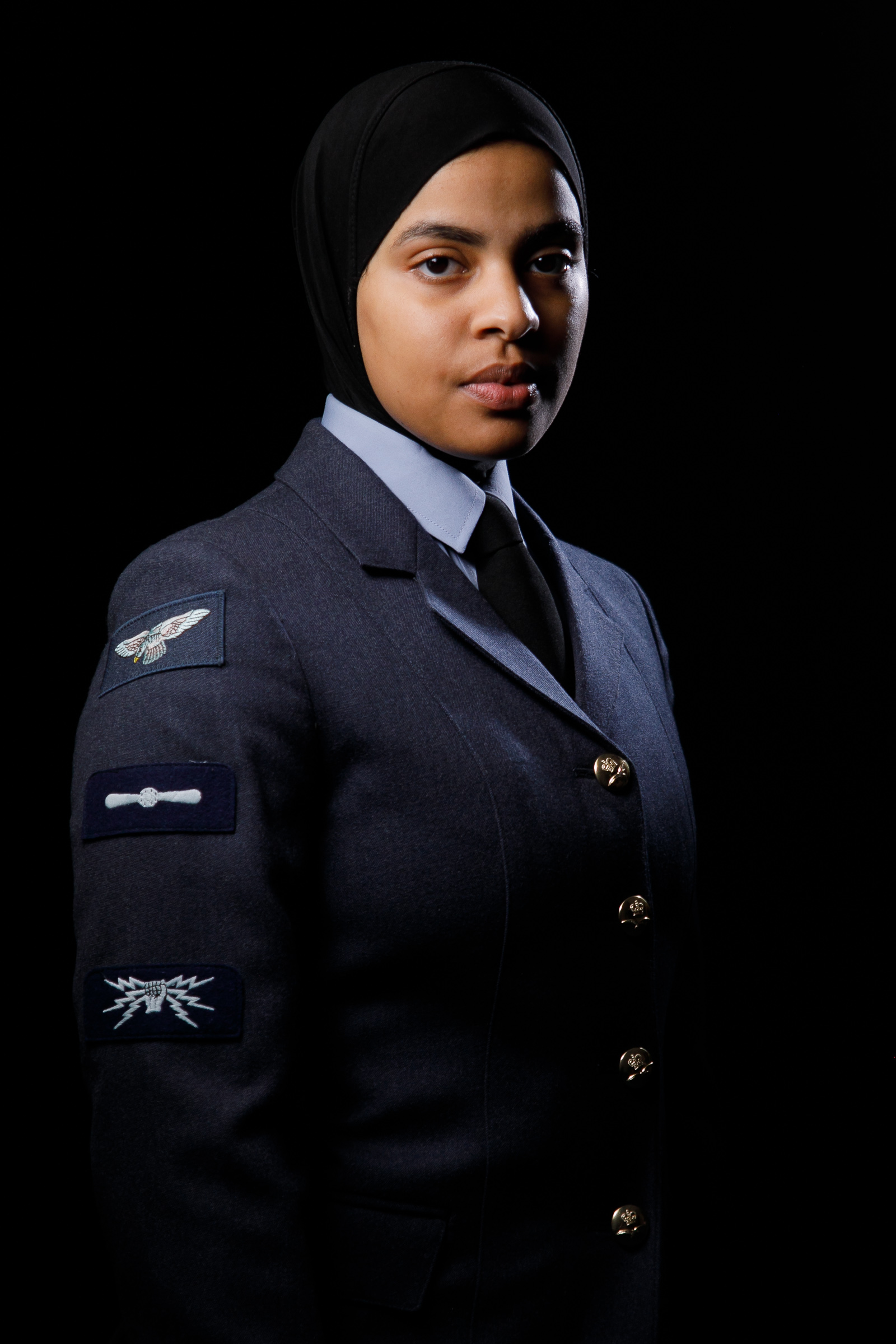
A Jazz Quintet from RAF Music Services created a special video tribute for Black History Month. Inspired by legendary black composers, Senior Aircraftman Jerelle Jacob led the ensemble to produce new music rooted in the style of those such as Thelonious Monk, Miles Davis, Wayne Shorter, Louis Armstrong, Duke Ellington, Charles Mingus, John Coltrane and Herbie Hancock.
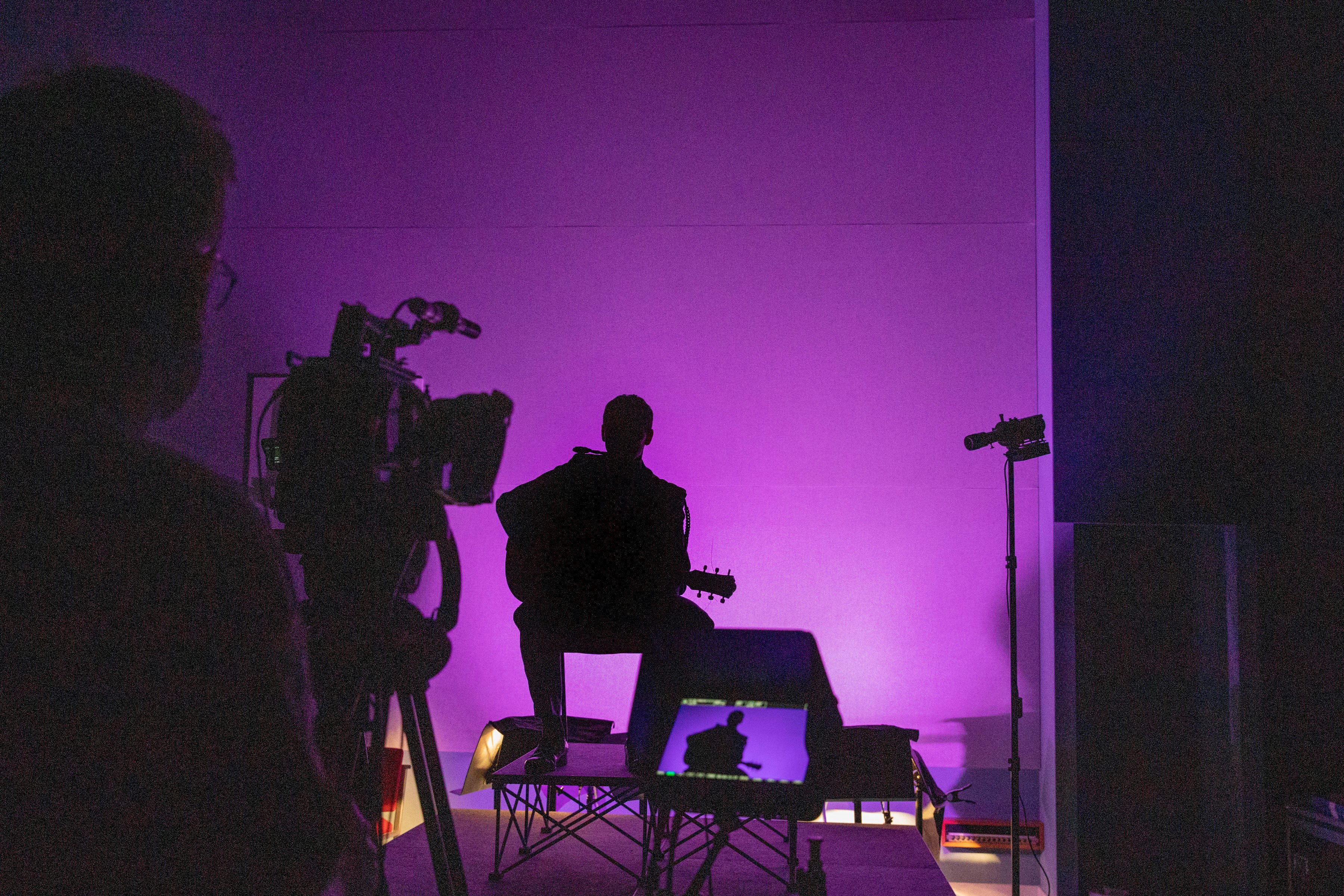
On 25th October, the RAF held a wreath laying ceremony at the Runnymede Air Forces War Memorial; led by BAME Network Advocate, Air Commander Shaun Harris, and BAME Network Chair, Wing Commander Calvin Bailey.
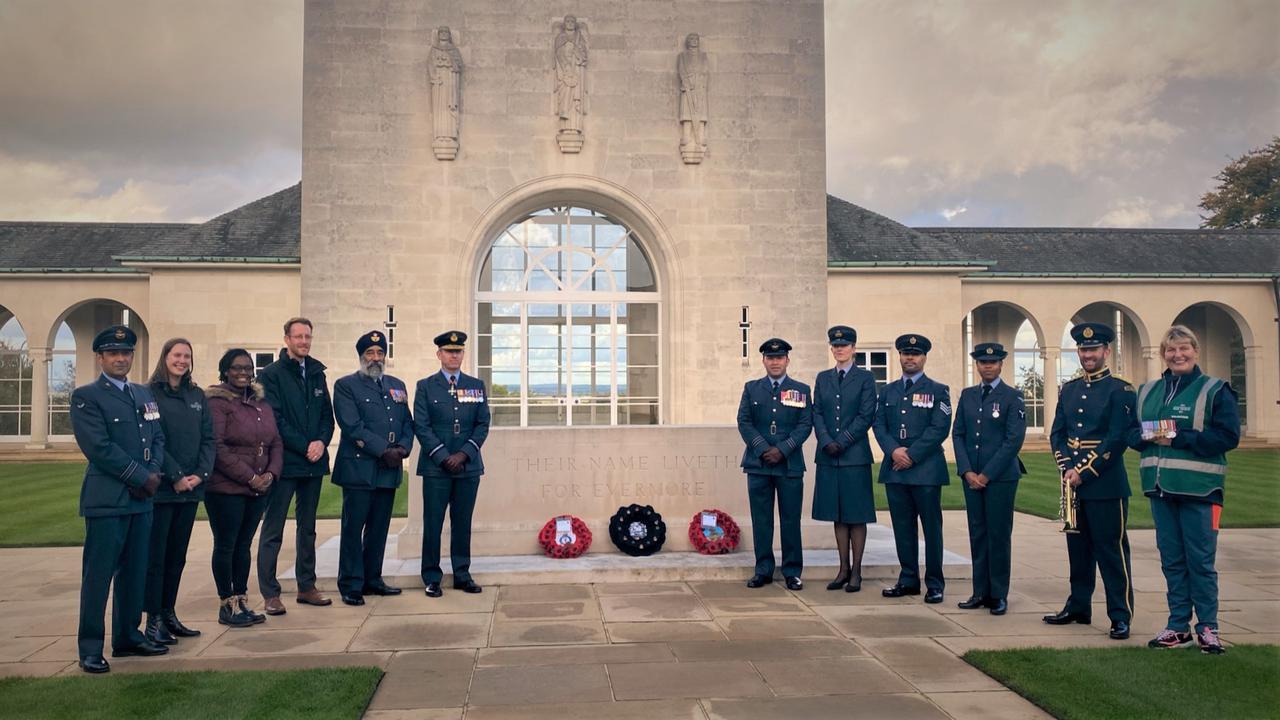
The War Memorial commemorates over 20,000 personnel who died during World War II. A ‘Black Poppy Rose’ wreath was also laid to represent over a million names, cultures, identities and historical contributions.
